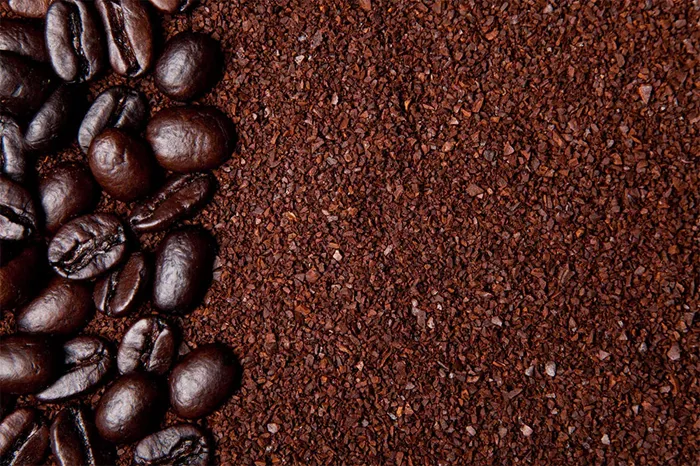Coffee lovers know that the freshness of coffee beans is key to a great cup of coffee. Proper storage is essential to maintain the rich aroma and full flavor of freshly roasted beans. One commonly debated storage question is whether coffee beans should be kept in the freezer. While there are pros and cons to this method, it’s important to understand the best practices to preserve freshness without compromising the quality of your coffee.
Optimal Storage Conditions
To maximize the freshness and flavor of your coffee beans, understanding the ideal storage conditions is crucial.
Temperature
Coffee beans should be stored in a cool, stable environment, ideally at room temperature, between 60 to 70°F (15 to 21°C). Exposure to extreme heat, such as from a stovetop or near a window with direct sunlight, can quickly degrade the freshness of coffee.
Humidity
Coffee beans are highly porous and sensitive to moisture. The optimal humidity level for storage is between 60% and 70%. High humidity can lead to mold or stale flavors.
Light
Exposure to light accelerates the degradation of coffee beans, leading to loss of aroma and flavor. Coffee should be kept in a dark, opaque container to avoid light exposure.
Air
Oxygen exposure is one of the most detrimental factors to coffee freshness. Oxidation causes beans to lose their flavor quickly. Airtight containers are necessary to limit air exposure.
Freezer Storage Pros and Cons
One popular question among coffee enthusiasts is whether to store coffee beans in the freezer. While it may seem counterintuitive, freezing coffee beans can have both benefits and potential drawbacks.
Pros of Freezer Storage
Preservation of Freshness: Freezing coffee beans helps to slow down the aging process, preserving their flavor and aroma for longer periods. The low temperatures can halt the degradation process caused by oxidation.
Extended Shelf Life: By keeping coffee beans in the freezer, they can last much longer without losing their freshness compared to room temperature storage.
Convenience: Freezing allows consumers to buy coffee in larger quantities without worrying about it going stale before it’s consumed.
Cons of Freezer Storage
Moisture Condensation: When you remove frozen coffee beans from the freezer, condensation can form due to temperature changes. Moisture can penetrate the bag or container, potentially leading to mold or flavor dilution.
Odors: Freezers often contain various strong-smelling foods and spices. Coffee beans can absorb these odors, negatively impacting their flavor.
Frequent Temperature Fluctuations: Each time the freezer door opens and closes, temperature fluctuations can affect the quality of coffee beans. Exposure to fluctuating temperatures increases the risk of condensation and moisture infiltration.
Proper Freezer Storage Techniques
If you choose to store your coffee beans in the freezer, following proper storage techniques is essential to maintain their freshness and flavor.
Use Airtight Containers
Store coffee beans in vacuum-sealed or airtight containers to prevent moisture and odors from entering. Glass jars with tightly sealing lids, or specialized coffee storage bags with one-way valves, work best.
Portion Control
Store coffee beans in smaller, airtight bags or containers to prevent repeated exposure to freezing and thawing cycles. For instance, you could store enough beans for a week or two at a time, and then refill the container as needed.
Defrost Properly
Never defrost coffee beans at room temperature or in a microwave. Instead, transfer the beans to the refrigerator overnight before moving to room temperature. This slow defrosting process prevents condensation.
Alternative Storage Methods
While the freezer is an option, there are alternative storage methods that are better suited for maintaining coffee freshness.
Opaque, Airtight Containers
Choose containers made of glass or ceramic, which are non-reactive, and ensure they are tightly sealed to prevent air exposure.
Cool, Dark Places
Store coffee beans in a cool, dark area, such as a pantry or cupboard. The temperature should be stable and away from heat sources, direct sunlight, and excessive humidity.
Coffee Canisters with One-Way Valves
Some specially designed coffee canisters include a one-way valve to release CO2 produced during the roasting process, while preventing air from entering. These are great for short- to medium-term storage.
Impact on Flavor and Quality
The storage method used for coffee beans directly impacts their flavor, aroma, and overall quality over time.
Freezer Storage
Properly stored in the freezer, coffee beans can retain their flavors for months without noticeable loss. However, moisture infiltration and odor absorption can dilute these qualities.
Room Temperature Storage
Coffee stored at room temperature typically lasts about one to two weeks before noticeable degradation in flavor occurs. Beans stored this way are more susceptible to oxidation and moisture absorption.
Cool, Dark Storage
The best method for long-term freshness involves keeping beans in a cool, dark environment in airtight containers. Flavors are preserved for longer periods when stored this way.
Expert Recommendations
Coffee experts and baristas recommend these best practices for storing coffee beans to maximize freshness:
Purchase Whole Beans
Buy whole beans rather than pre-ground coffee, as ground coffee oxidizes quickly.
Grind as Needed
Grind your coffee just before brewing to ensure maximum flavor.
Store Coffee in Small Batches
Purchase coffee in smaller quantities to ensure beans are consumed within their optimal freshness window.
Avoid the Freezer Unless Necessary
Only use the freezer as a last resort. If you do, freeze beans in airtight packaging, use them sparingly, and never refreeze.
Conclusion
Whether to keep coffee beans in the freezer is a matter of personal preference and practicality. For long-term storage, using a cool, dark, and airtight environment offers the best results. If freezing becomes necessary, following proper techniques can help maintain flavor and quality. Regardless of the method, keeping beans away from air, moisture, and light is key to preserving freshness and flavor. By understanding and applying these best storage practices, you can enjoy consistently rich and flavorful coffee for weeks or even months.
Related topics:
- Is Green Coffee Bean Extract Bad for Your Kidneys?
- What Are the Benefits of Green Coffee Beans: A Comprehensive Guide
- What Type of Coffee Beans Does McDonald’s Use?


